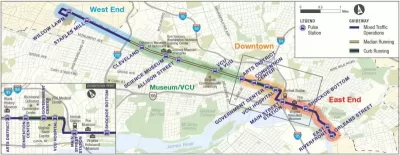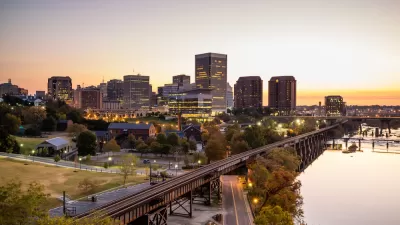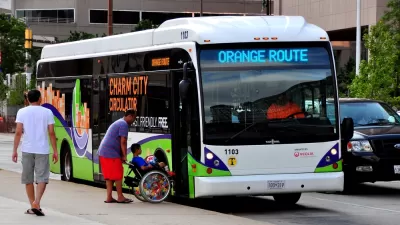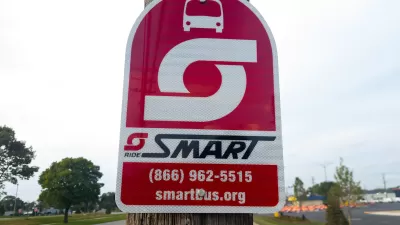Residents charge the Greater Richmond Transit Company (GRTC) with making service worse for low income residents.

The Greater Richmond Transit Company (GRTC) undertook a large-scale overhaul last year, and some think the new system unduly burdens poor residents. A report from Virginia Public Radio's WVTF spoke with resident Carmen Terrell who now faces a longer commute. "A recent redesign of the entire region’s bus system streamlines many routes, and includes a new frequent reliable line called the Pulse. But for many, including Terrell, it means more transfers and longer walks," Mallory Noe-Payne reports for WVTF.
The agency is now being sued on civil rights grounds because, plaintiffs claim, the redesign is unfair to many poor and black Richmond residents. For their part, GRTC representatives point out they have created more frequent service, and increased accessibility of the city. According to GRTC, any routes have seen decreased headways and where routes were cut or changed it was because the ridership there didn’t justify the service. At the same time, "Research out of Virginia Commonwealth University confirms that many low-income residents were negatively affected by the redesign." The same report also says bus routes expanded overall access to the system. Access improvements mean more people can get to points of interests more quickly and more access could make the service more attractive to “choice riders” who could pick bus transit over some other option.
The question: Did the GRTC sacrifice the service quality for those who need transit the most, to get those improvements?
The reviews of the GRTC bus system were much more positive earlier this year, when GRTC was reporting improved ridership figures.
FULL STORY: Bus Redesign Prompts Question: Who is Public Transportation For?

Planetizen Federal Action Tracker
A weekly monitor of how Trump’s orders and actions are impacting planners and planning in America.

Map: Where Senate Republicans Want to Sell Your Public Lands
For public land advocates, the Senate Republicans’ proposal to sell millions of acres of public land in the West is “the biggest fight of their careers.”

Restaurant Patios Were a Pandemic Win — Why Were They so Hard to Keep?
Social distancing requirements and changes in travel patterns prompted cities to pilot new uses for street and sidewalk space. Then it got complicated.

Platform Pilsner: Vancouver Transit Agency Releases... a Beer?
TransLink will receive a portion of every sale of the four-pack.

Toronto Weighs Cheaper Transit, Parking Hikes for Major Events
Special event rates would take effect during large festivals, sports games and concerts to ‘discourage driving, manage congestion and free up space for transit.”

Berlin to Consider Car-Free Zone Larger Than Manhattan
The area bound by the 22-mile Ringbahn would still allow 12 uses of a private automobile per year per person, and several other exemptions.
Urban Design for Planners 1: Software Tools
This six-course series explores essential urban design concepts using open source software and equips planners with the tools they need to participate fully in the urban design process.
Planning for Universal Design
Learn the tools for implementing Universal Design in planning regulations.
Heyer Gruel & Associates PA
JM Goldson LLC
Custer County Colorado
City of Camden Redevelopment Agency
City of Astoria
Transportation Research & Education Center (TREC) at Portland State University
Camden Redevelopment Agency
City of Claremont
Municipality of Princeton (NJ)





























